When George Balanchine said that “there are no mothers-in-law in ballet”, he wasn’t just stating the obvious. He meant that there are some things that simply cannot be expressed in dance. Emotion and nuance are a story-ballet’s native territory; factual complications are a no-go.
Yet Christopher Wheeldon has ignored this famous advice in his latest three-acter for the Royal Ballet. The story he chose to adapt, Like Water for Chocolate, the 1989 bestseller by the Mexican novelist Laura Esquivel, not only features its fair share of convoluted family relationships but more crucially centres on food – its preparation, consumption and potentially liberating effects on memory and desire. So central is this theme that every chapter includes a recipe, hardly a recommendation for ballet.
There’s no denying that Wheeldon’s production looks delicious. Bob Crowley and Natasha Katz, the same design and lighting talents who helped make The Winter’s Tale such a hit in 2014, magic the stage into a sun-gilded landscape foregrounded by screens of Mexican lace. This is just as well for those who arrive to take their seats with no time to read the two full pages of synopsis devoted to Act I, since it gives them something to look at while they struggle to follow the plot. Even around the de la Garcha family’s kitchen table the three daughters and their mother take a bit of sorting out, especially when one of them gets engaged to the boy who has been courting her sister. The real trouble starts when the family cook dies, only to reappear on stage as a ghostly agony aunt, the first of many confusing appearances by deceased characters.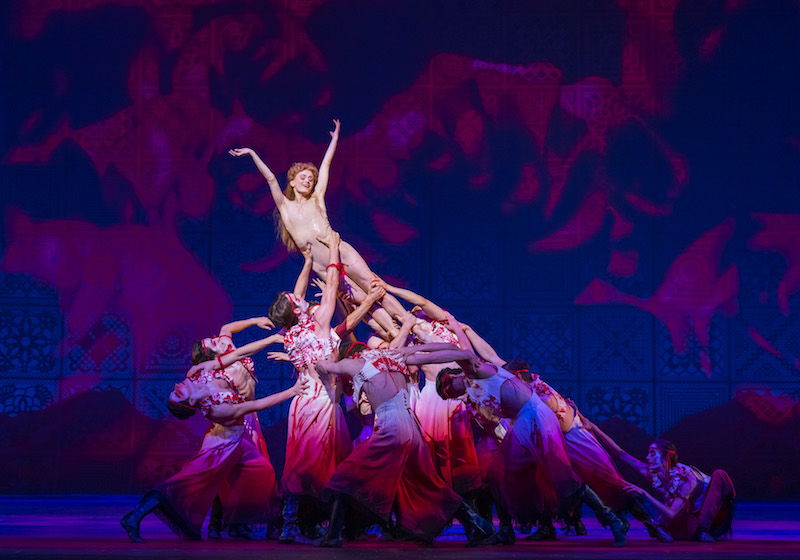 The novel’s magical-realist elements may have been a draw for the choreographer and his co-writer/composer Joby Talbot, but they prove a stumbling block for both. The wild changes of state that work happily on the page translate to the stage as clumsy lurches of tone – guests at a wedding puking en masse after eating the cake, or one of the sisters reacting to a supper dish with violent sexual urges. An inspired choreographic idea or two might have saved these scenes, but Wheeldon’s usual flair seems to have deserted him. In the aphrodisiac episode – brought on by quail in rose-petal sauce – the normally respectable Gertrudis (danced by a brave Anna Rose O’Sullivan, pictured above) dances naked on the family dining table while streams of – what? – rose-petals, flames of desire (the costumes are unclear) emerge from under it to cavort about the stage. In 25 years of watching Wheeldon’s choreography I could not have imagined ever reaching for the word “cavort”, but that, alas, is what these creatures do. Was this scene meant to be comic? I only know that no one laughed.
The novel’s magical-realist elements may have been a draw for the choreographer and his co-writer/composer Joby Talbot, but they prove a stumbling block for both. The wild changes of state that work happily on the page translate to the stage as clumsy lurches of tone – guests at a wedding puking en masse after eating the cake, or one of the sisters reacting to a supper dish with violent sexual urges. An inspired choreographic idea or two might have saved these scenes, but Wheeldon’s usual flair seems to have deserted him. In the aphrodisiac episode – brought on by quail in rose-petal sauce – the normally respectable Gertrudis (danced by a brave Anna Rose O’Sullivan, pictured above) dances naked on the family dining table while streams of – what? – rose-petals, flames of desire (the costumes are unclear) emerge from under it to cavort about the stage. In 25 years of watching Wheeldon’s choreography I could not have imagined ever reaching for the word “cavort”, but that, alas, is what these creatures do. Was this scene meant to be comic? I only know that no one laughed.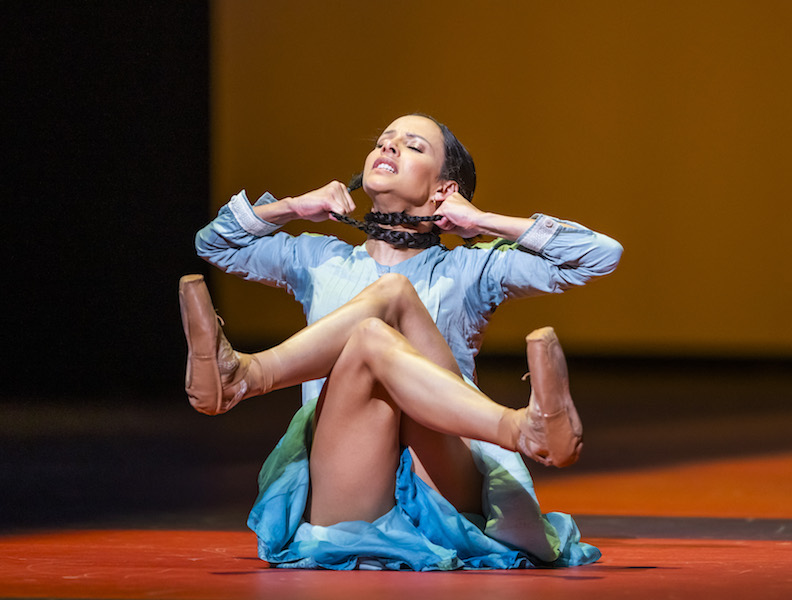 Joby Talbot’s orchestral score also suffers from bumps in the road, one minute spinning a web of Debussy-Ravelian delicacy, the next smashing it up with climactic brass with wearying repetition. The single big number for the corps de ballet nods to the rhythms of Mexican folkdance, but not even the Mexican guest conductor Alondra de la Parra can make the ROH orchestra swing.
Joby Talbot’s orchestral score also suffers from bumps in the road, one minute spinning a web of Debussy-Ravelian delicacy, the next smashing it up with climactic brass with wearying repetition. The single big number for the corps de ballet nods to the rhythms of Mexican folkdance, but not even the Mexican guest conductor Alondra de la Parra can make the ROH orchestra swing.
Only the principal casting reminds you that this is a world-class ballet company, admired especially for its dance-acting. Francesca Hayward (pictured above) and Marcelino Sambé (main picture) are luminous as the thwarted leading couple, prevented from coming together until an apocalyptic final scene. Laura Morera makes the best of a miserable role as the embittered mother who, even in death, finds a monstrous way to terrorise her daughter. Fans of the novel may find its episodes faithfully recreated in this huge and extravagantly expensive production, but the special pungency of the dish has gone.




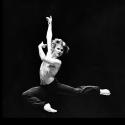

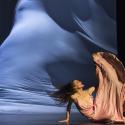




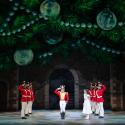
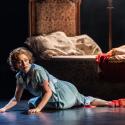

Add comment